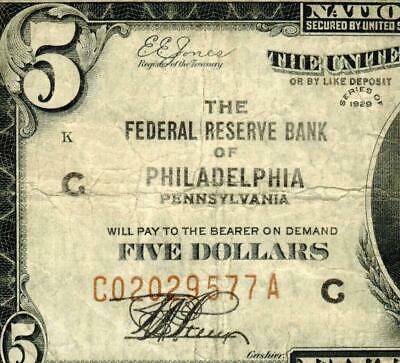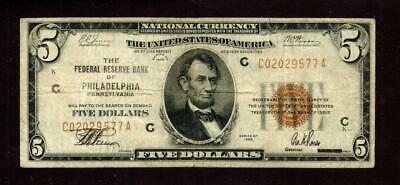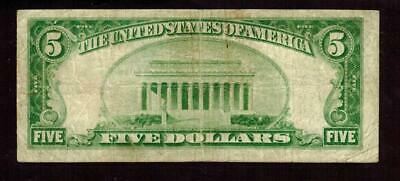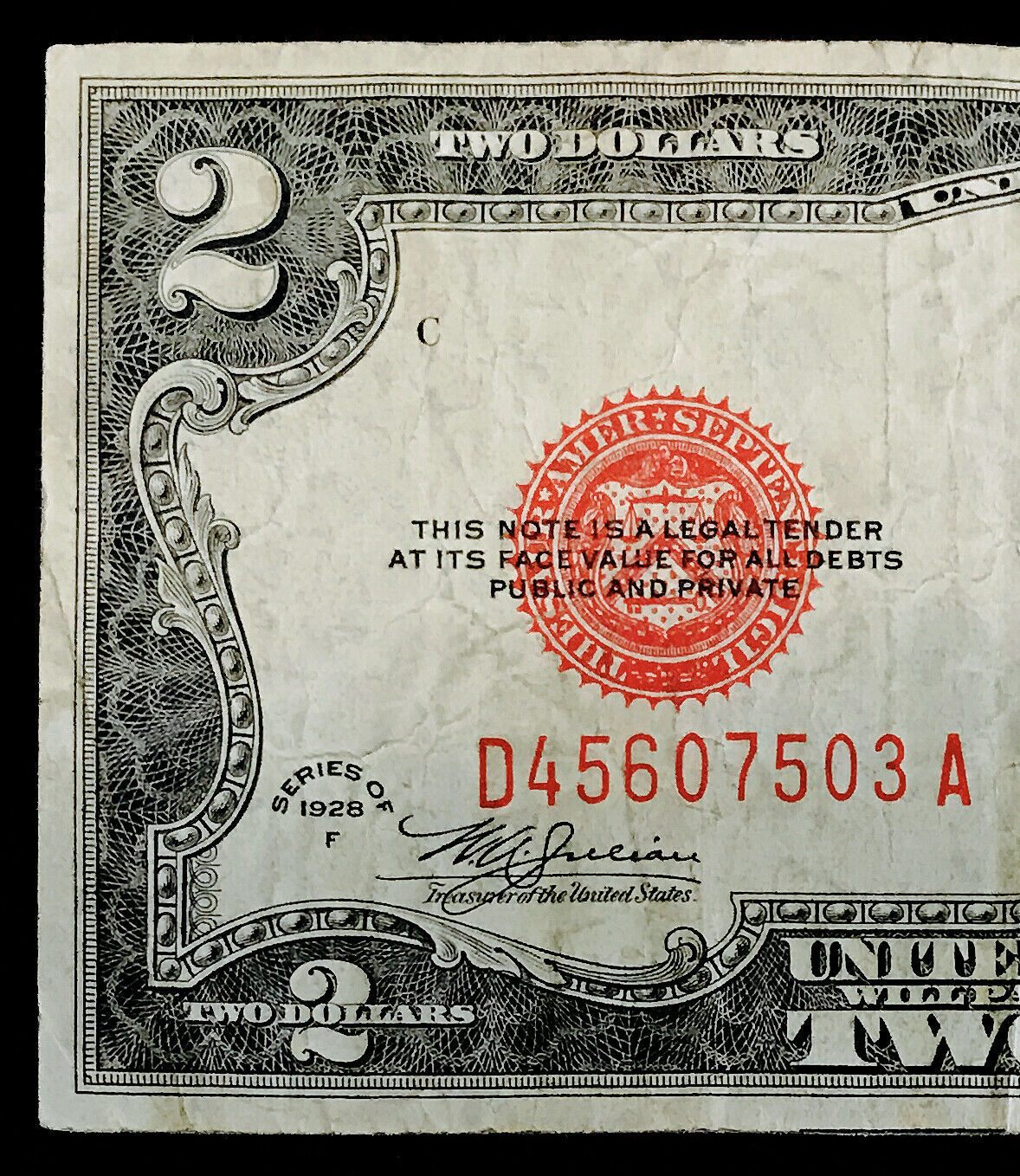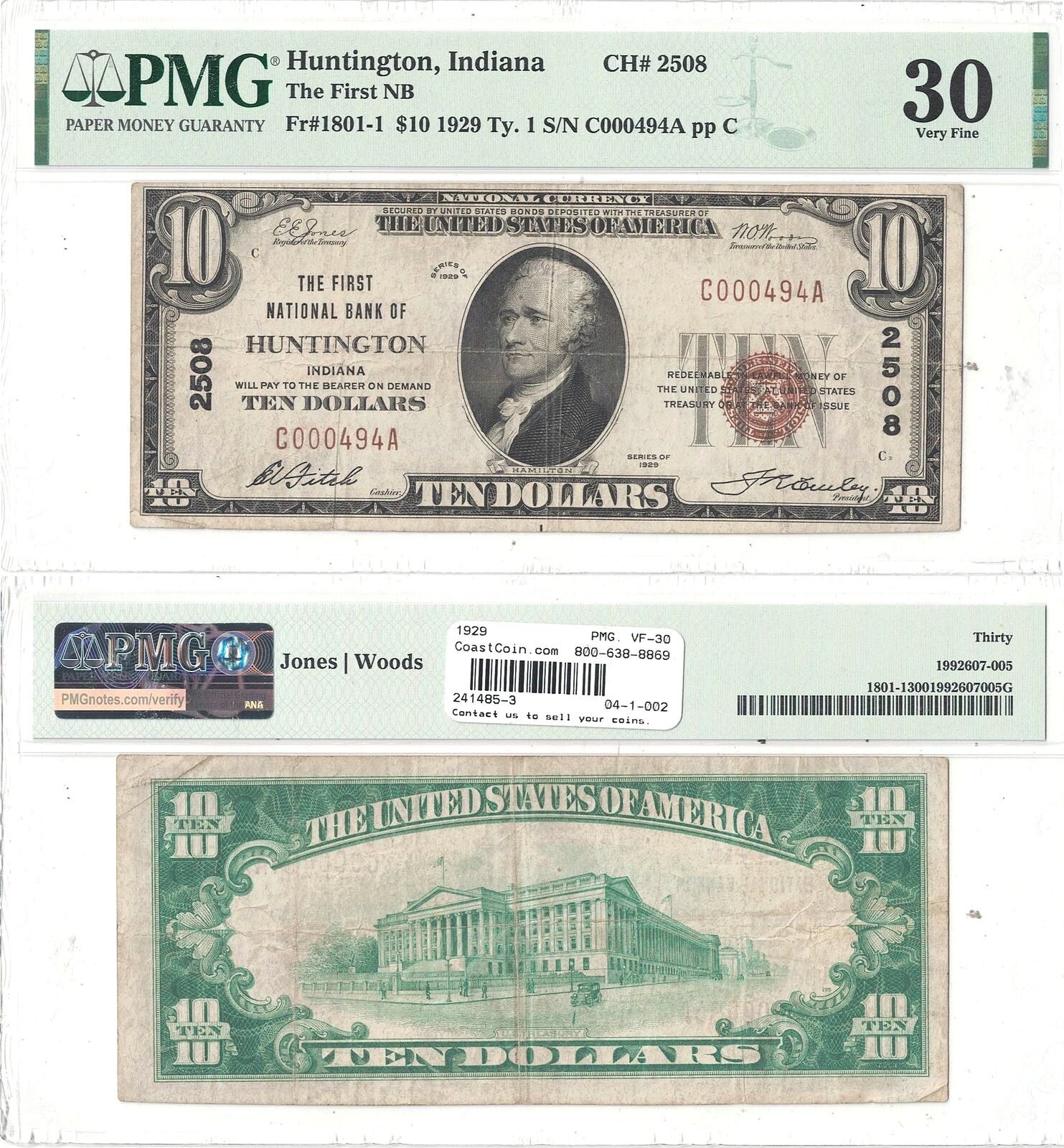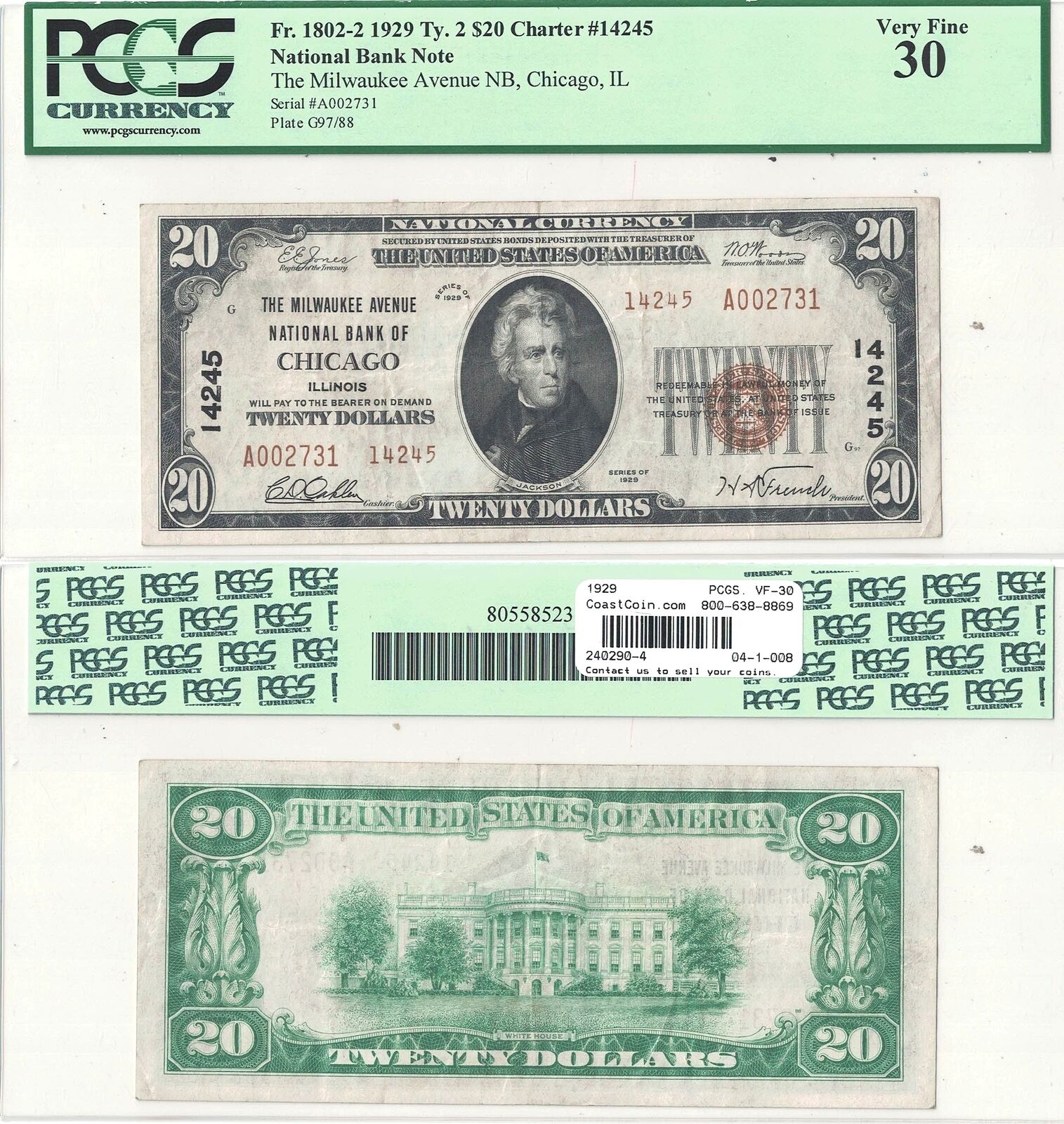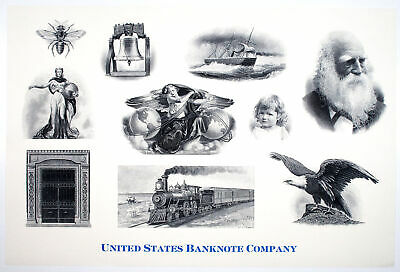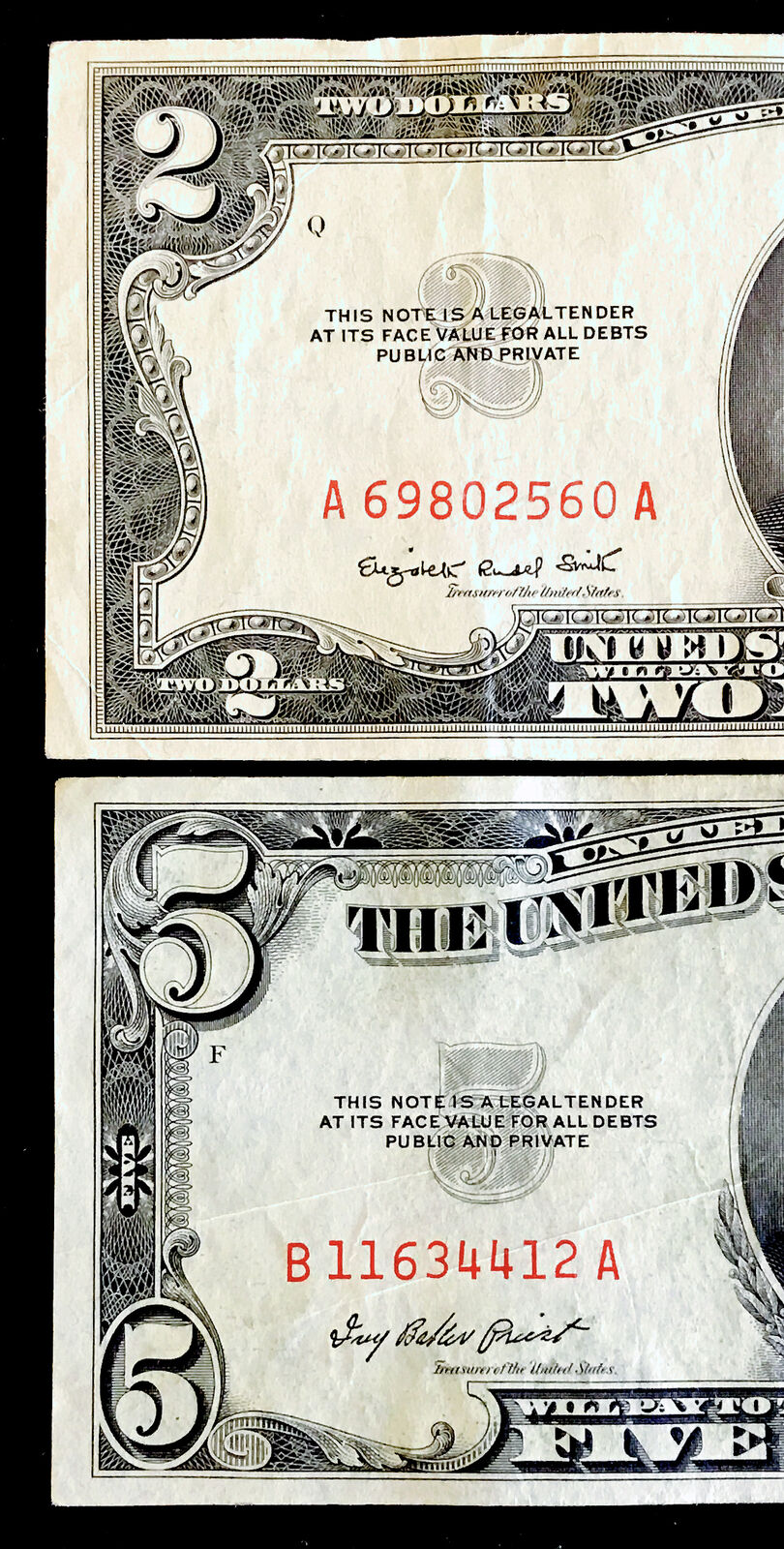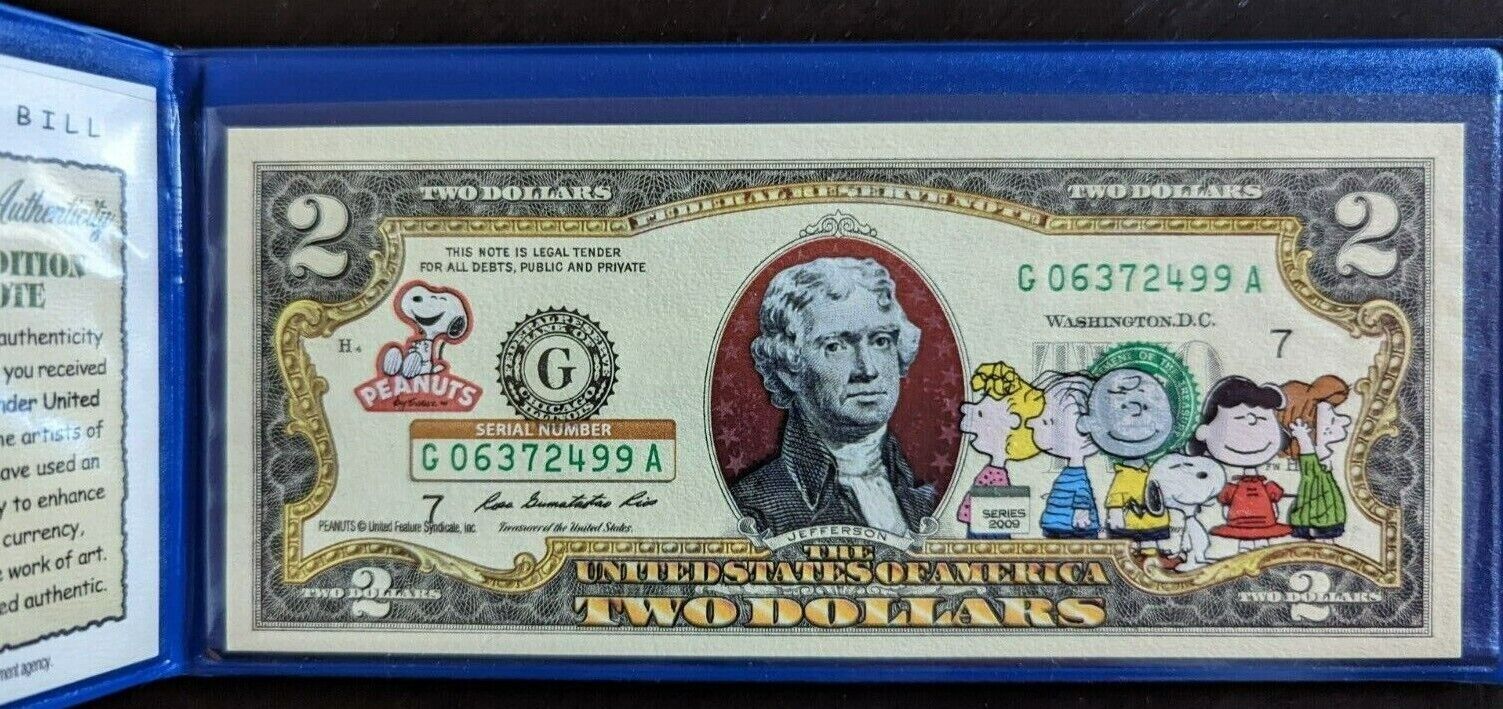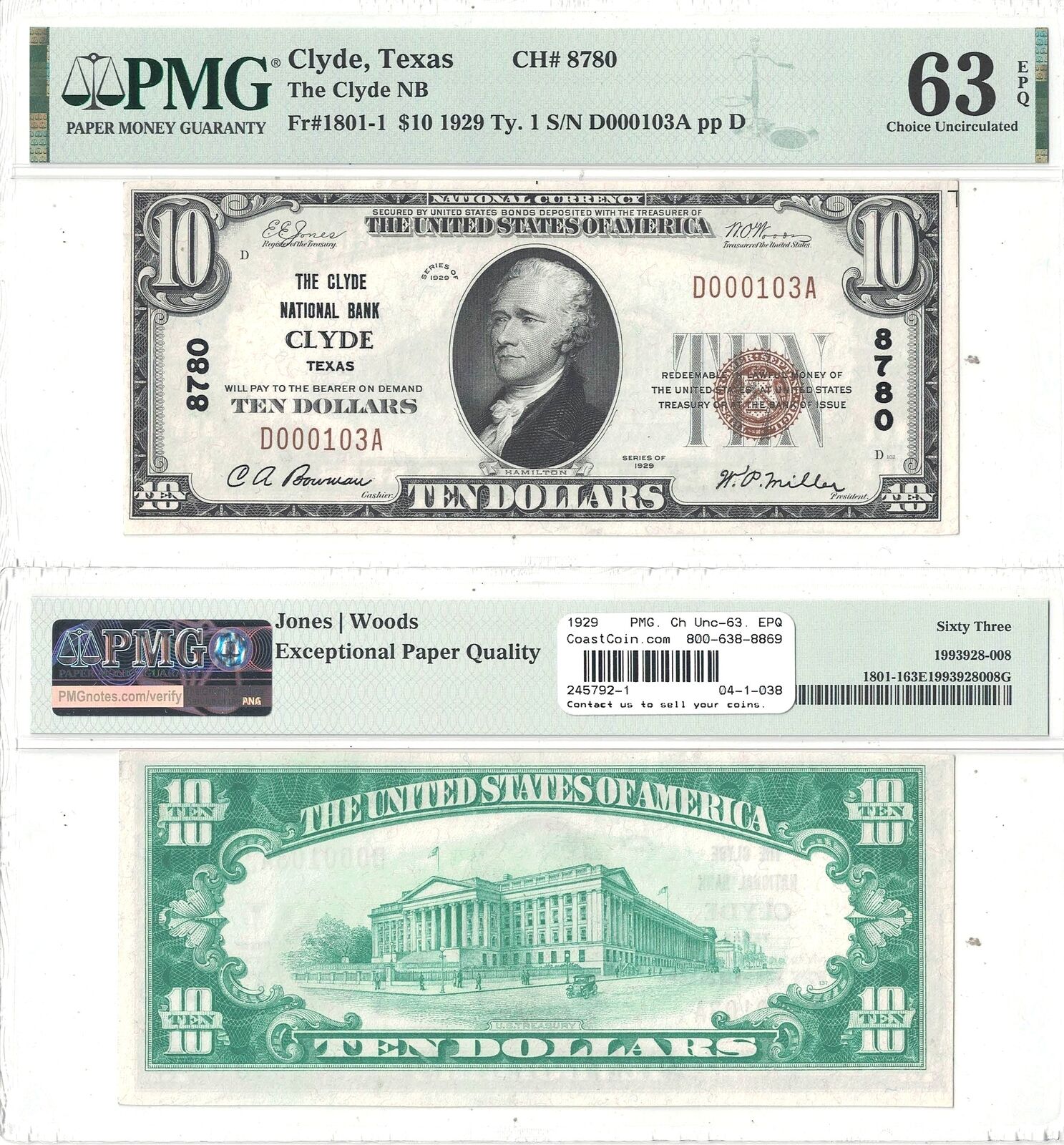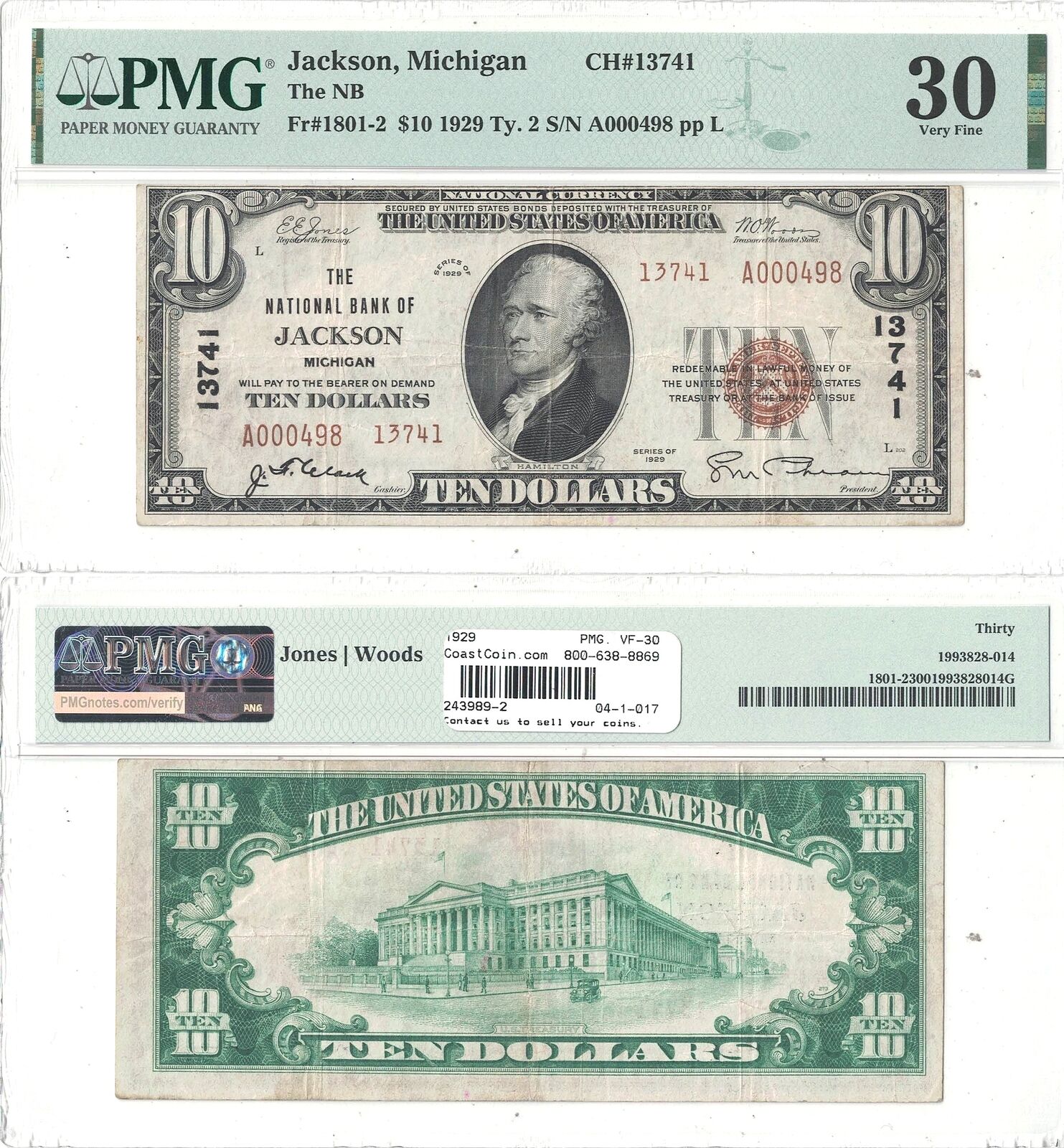-40%
Philadelphia 1929 ** National Currency ** DAILY CURRENCY AUCTIONS
$ 10.77
- Description
- Size Guide
Description
Paper CurrencyPaper Currency
Click images to enlarge
Description
Hello
Philadelphia - 1929 ** National Currency **
FINE
With no tears or holes. Visible soiling.
CLICK HERE
Visit My eBay Store: ronaldjh2003
CLICK HERE
View My Feedback
CLICK HERE
Add me to your Favorite Sellers
Accept returns - Free return shipping
Combined shipping - Combine items for up to eight days
MISSOURI BUYERS MUST PAY SALES TAX 7.95%. In most other states
eBay is required to collect sales tax.
You can read more about eBay and sales tax here
https://www.ebay.com/help/buying/paying-items/paying-tax-ebay-purchases?id=4771
Currency Grading Scale:
Gem Crisp Uncirculated (or Gem CU):
A crisp, perfectly centered example that has perhaps one tiny flaw that limits the grade-perhaps a microscopically frayed corner, or an almost imperceptible crinkle in the paper. The note must be absolutely original, with bold embossing and bright colors. Any flaw that is readily evident, such as a noticeable counting crinkle or slightly imperfect centering, will prevent a note from receiving a Gem CU grade. Notes in this and any Uncirculated grade will, of course, have absolutely no folds or bends.
Choice Crisp Uncirculated (or Choice CU):
A note in this grade will be a strictly Uncirculated note, with no folds or bends present even under close scrutiny. The paper quality and eye appeal will be above average for the issue, and any flaws present will be minor in nature. Imperfect centering is acceptable at this grade level, although any note with severe centering problems cannot attain this grade. A counting crinkle or two is acceptable, as well as a microscopically frayed corner or two. Any combination of these or other problems would drop a note into a lower category. A Choice CU note should be a pleasing, original example with no major distractions that are readily apparent.
Crisp Uncirculated (or CU):
A note in this grade must be strictly Uncirculated-with no folds, bends, or wrinkles present, even when viewed very closely under a strong light. A bent corner tip may be acceptable at this grade level if there are no other flaws, but only if the bend is within the margin and it does not affect the design. If the bend is large or there is more than one, the note cannot grade CU. Such a note may have centering problems, counting crinkles, or microscopically rounded corners, but the note must be strictly free of folds or bends. A note that is otherwise Choice or Gem CU but has been processed or pressed might fall into this category.
Choice Almost Uncirculated (or Choice AU):
A note in this grade will be a "just miss" for a Choice CU grade or higher. It will have above average eye appeal and will be attractive for the issue, but a bent corner or light vertical centerfold will keep it from an Uncirculated grade. Two light vertical bends are acceptable for this grade, as long as the surface of the paper is not "broken." More than one light fold or a heavy fold or crease will drop the note into a lower grade classification.
Almost Uncirculated (or AU):
An AU note will have one or more light folds that are not heavy in nature or obtrusive to the overall appearance. Three light vertical bends would be acceptable for this grade if they do not "break" the surface of the paper, but no more than two light folds may be present. One heavy fold or crease may be present at this grade, but two heavy folds or creases will drop the note to a lower grade level.
Extremely Fine (or XF):
A note in this grade will be bright, fresh, crisp, and attractive, but a few light folds or bends may be present. The overall eye appeal will be above average, and only the slightest soiling may be visible. A note in this grade might have a few light folds or several very minor bends, or a couple of vertical creases may be present. A note with a horizontal fold and three vertical folds cannot technically grade XF, although a very light horizontal bend that does not "break" the surface of the paper might be acceptable at this grade level if the three vertical folds are not heavy and there are no other apparent flaws. A typical XF note may have a couple of pinholes, but any larger holes would prevent a note from reaching this grade level.
Very Fine (or VF):
A VF note should have nearly full remaining crispness, although several folds, wrinkles, or other signs of circulation may be present. Mild soiling might be apparent, but it should not be serious. No tears, stains, or other impairments should be readily apparent, and the note should still have nice eye appeal. Several minor pinholes may be visible when the note is held to a light. The corners may be slightly frayed or slightly rounded at this grade level, but the paper should retain nearly full crispness and there should be no loss of color in the design.
Fine (or F):
A note in this grade will resemble most notes that have spent considerable time in circulation. The piece will have lost some of its crispness, but the paper will still be solid. (A limp note without any crispness will classify at a lower level.) The corners may be slightly frayed or rounded, and the edges may also be frayed. Pinholes may be readily apparent, but none should be large or obtrusive. A few minor edge splits are not uncommon in this grade, but they typically will be within the margin and not affect the design. No major stains or tears may be present, although a stray pencil marking or light teller stamp will not affect the grade at this level if it is not dark or obtrusive.
Very Good (or VG):
At this grade classification, a note will be heavily worn with slightly rounded corners, frayed edges, or slightly rough margins. The paper will be intact, however, and no large pieces may be missing. A few edge splits may be apparent, although they must not be severe. The note will be limp or soiled from circulation, and some wallet staining may be visible. No major damage is acceptable at this grade level, however, and any note that has a large hole, stain, tear, or missing piece must fall into a lower grade category.
Good (or G):
A note in this grade will be heavily worn, soiled, torn, taped, holed, or missing small pieces from the design. It will still be roughly intact, and readily distinguishable by series and design type. Damage or wear may be rather severe, but any note that is missing large portions of the design or is barely attributable may fall into an even lower grade classification, such as Fair or Poor.
Get images that
make Supersized seem small.
Showcase your items with Auctiva's
Listing Templates!
THE simple solution for eBay sellers.
Track Page Views With
Auctiva's FREE Counter
